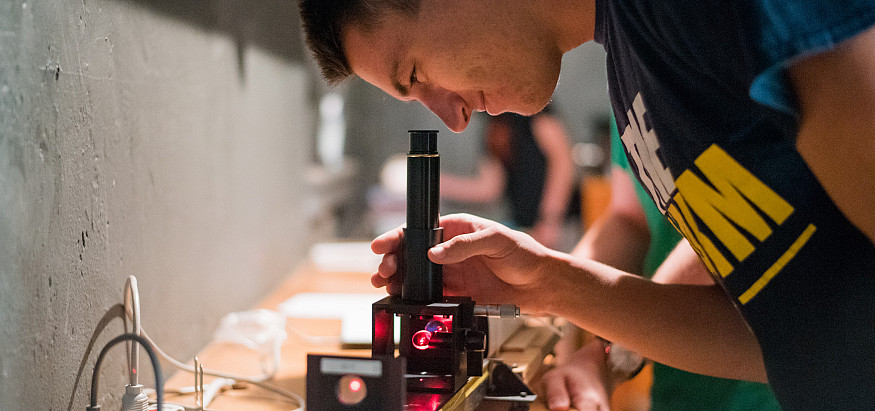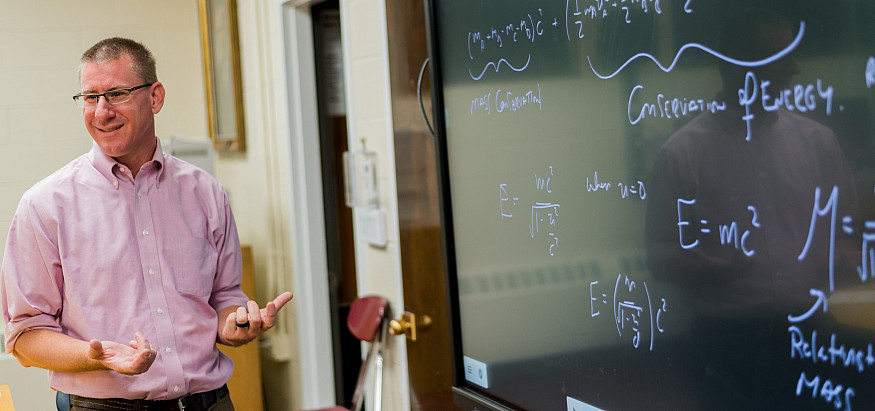Engineering Science
The Engineering Science program will give you broad-based fundamental engineering preparation through exploration and application of engineering principles to a range of problems encountered in a variety of engineering and basic science fields.
The interdisciplinary nature of the Engineering Science degree at Emory & Henry College brings together faculty from multiple departments that engage students in active exploration of engineering principles from a variety of perspectives.
The Engineering Science program at Emory & Henry prepares our majors to be diverse and flexible thinkers. Students will apply skills learned in multiple disciplines to solve interdisciplinary problems and make connections between different fields.
Whether you choose to enter the workforce after graduation or continue your education at the graduate level, the one-on-one training and instruction you receive at Emory & Henry will provide you with the necessary background and skills to help you tackle the most important engineering problems of tomorrow.


